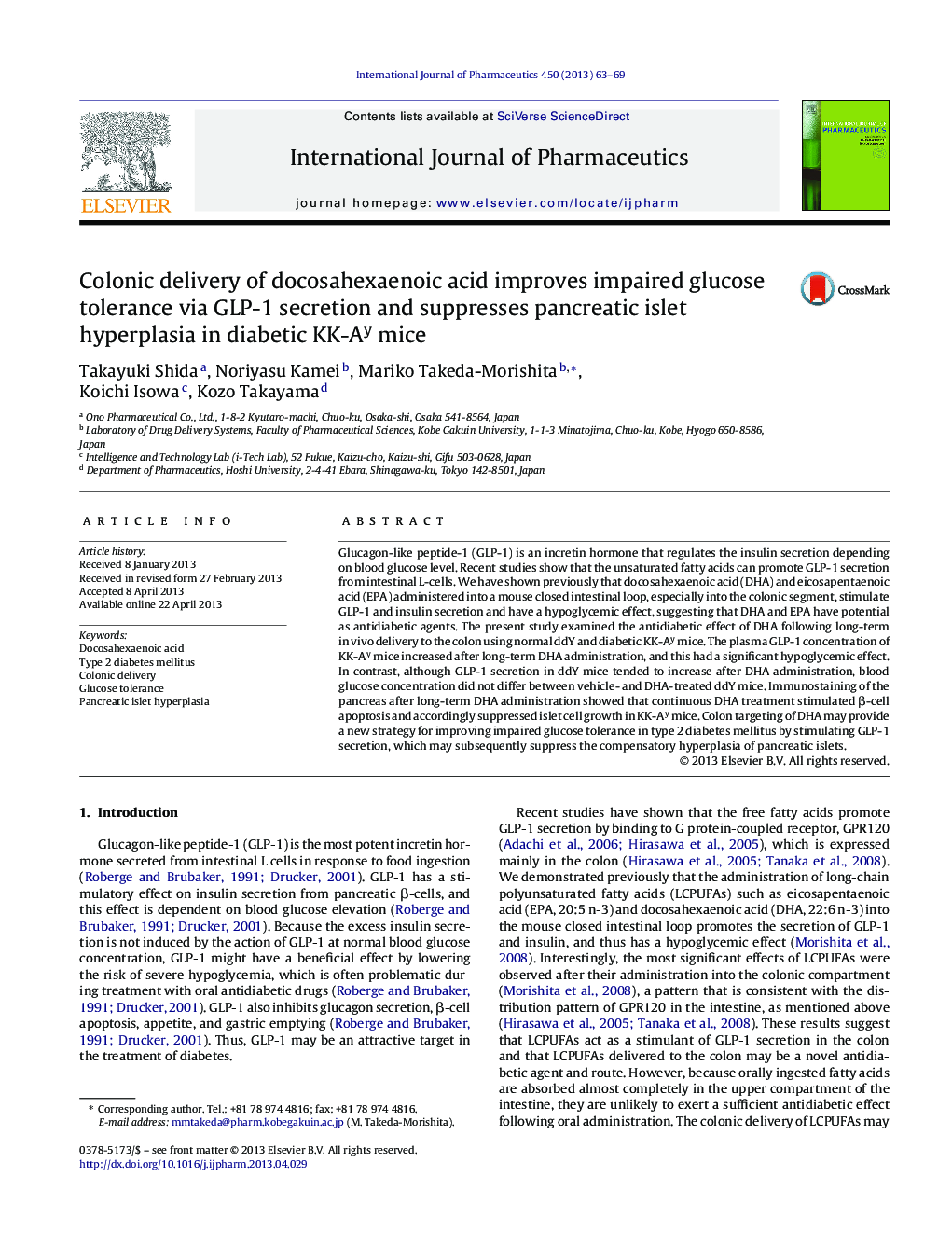| Article ID | Journal | Published Year | Pages | File Type |
|---|---|---|---|---|
| 2502427 | International Journal of Pharmaceutics | 2013 | 7 Pages |
Glucagon-like peptide-1 (GLP-1) is an incretin hormone that regulates the insulin secretion depending on blood glucose level. Recent studies show that the unsaturated fatty acids can promote GLP-1 secretion from intestinal L-cells. We have shown previously that docosahexaenoic acid (DHA) and eicosapentaenoic acid (EPA) administered into a mouse closed intestinal loop, especially into the colonic segment, stimulate GLP-1 and insulin secretion and have a hypoglycemic effect, suggesting that DHA and EPA have potential as antidiabetic agents. The present study examined the antidiabetic effect of DHA following long-term in vivo delivery to the colon using normal ddY and diabetic KK-Ay mice. The plasma GLP-1 concentration of KK-Ay mice increased after long-term DHA administration, and this had a significant hypoglycemic effect. In contrast, although GLP-1 secretion in ddY mice tended to increase after DHA administration, blood glucose concentration did not differ between vehicle- and DHA-treated ddY mice. Immunostaining of the pancreas after long-term DHA administration showed that continuous DHA treatment stimulated β-cell apoptosis and accordingly suppressed islet cell growth in KK-Ay mice. Colon targeting of DHA may provide a new strategy for improving impaired glucose tolerance in type 2 diabetes mellitus by stimulating GLP-1 secretion, which may subsequently suppress the compensatory hyperplasia of pancreatic islets.
Graphical abstractFigure optionsDownload full-size imageDownload high-quality image (316 K)Download as PowerPoint slide
